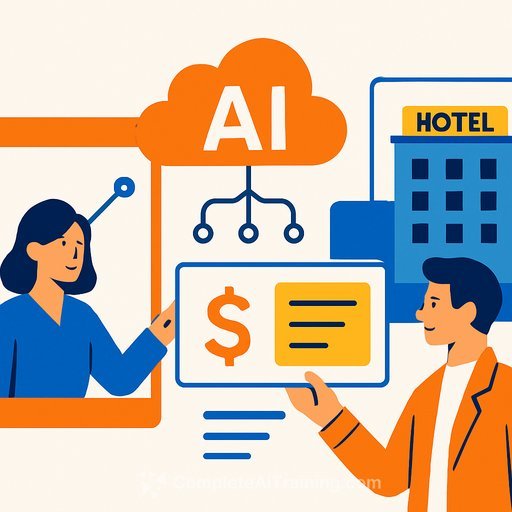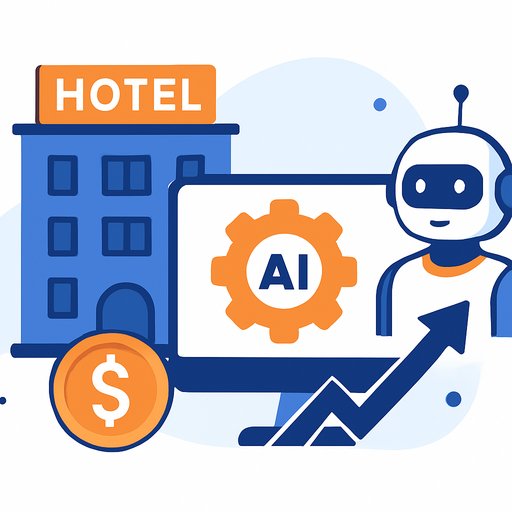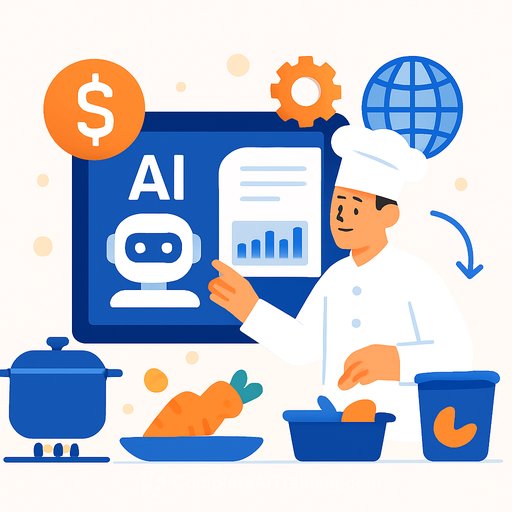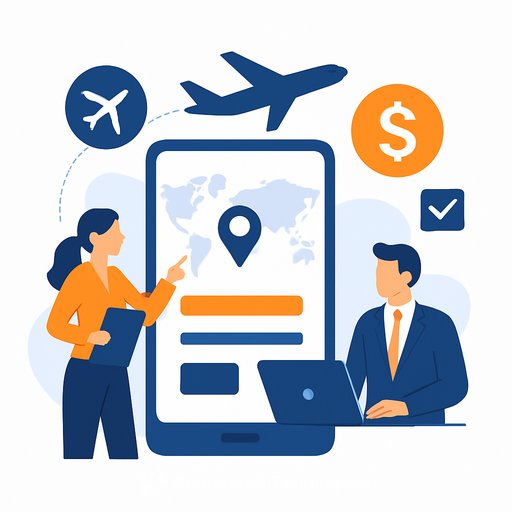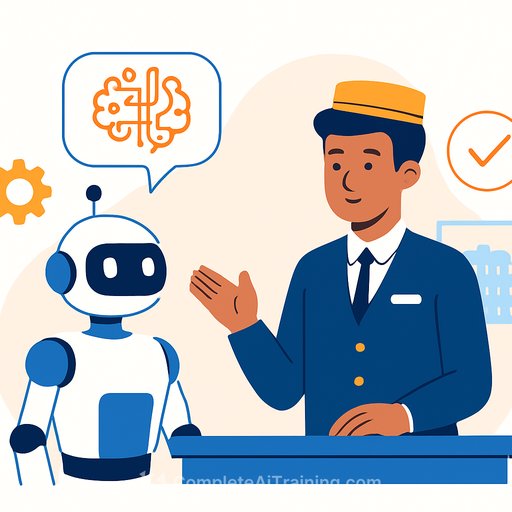Independent Stays Are Getting Real Results from AI: Highlights from TakeUp's "AI Hospitality Revolution 2025"
AI is moving from curiosity to competitive advantage for independent hospitality operators. TakeUp's new report, "The AI Hospitality Revolution 2025," surveyed 200 owners and managers actively using AI and found clear gains in time savings, guest communication, and revenue growth-alongside practical challenges like training and keeping a personal touch.
"AI is no longer an experiment, it's a competitive edge," said Bobby Marhamat, CEO of TakeUp. Most respondents are seeing meaningful results in months, not years, and the majority say performance meets or exceeds expectations.
Key findings at a glance
- Top use cases: Guest communication and chatbots (13.35%), marketing and advertising (12.15%), social media management (11.21%).
- Quick uptake: 35% started 6-12 months ago; 31% have used AI for 1-2 years.
- Why they adopted: Time savings and efficiency (19.73%), cost reduction (13.1%), competitive advantage (10.12%).
- Revenue impact: Among properties reporting gains, 25.5% saw 6-10% growth; 17% saw 11-15%; 17.5% saw 16-20%.
- Team sentiment: 42% of staff are somewhat comfortable with AI; 35.5% are very comfortable.
- Competitive pressure: Nearly 70% say AI matters for staying competitive; 39% call it a significant edge.
- Where AI delivers the most value today: Automated guest communications (16.7%), marketing campaign optimization (13.8%), dynamic pricing optimization (12.1%).
Where operators are heading next
- Smart energy management (14.3%).
- Deeper guest communication automation (12.9%).
- Automated marketing campaigns (9.7%).
The human touch still matters
Personalization remains non-negotiable: 74% say it's extremely or very important that AI feels personal. The biggest blockers are the need for more technical expertise (16.3%) and staff training (15.4%). The message is clear-tools matter, but process and people determine outcomes.
What this means for independent properties
AI is delivering quicker wins than many expected, especially in messaging, marketing, and pricing. Operators that standardize their workflows, train their teams, and measure results are seeing the benefits stack up within six months.
90-day action plan for GMs and revenue leaders
- Pick two high-leverage use cases: one guest-facing (pre-arrival FAQ/chat, upsell prompts) and one revenue-facing (dynamic pricing or campaign optimization). Set clear KPIs: response time, direct booking conversion, RevPAR, upsell conversion.
- Create guardrails: brand tone guide, escalation rules to a human, and clear disclosure in guest messaging. Review transcripts weekly for quality control.
- Upskill the team: short weekly workshops and simple SOPs. Assign AI "champions" per department to document wins and blockers. If you need structured training, explore role-based learning paths here: AI courses by job.
- Prove ROI: run A/B tests on offers and subject lines, track time saved in guest messaging and pricing updates, and tie results to revenue and review scores.
- Tighten the stack: connect AI tools to your PMS/CRM and channel manager, ensure data capture for reporting, and set a monthly review of prompts, rules, and outcomes.
- Prepare for energy savings: establish a baseline (utility data, occupancy patterns), pilot one building or floor with smart controls, and quantify savings before scaling.
Download the full report
Get the detailed data and charts here: The AI Hospitality Revolution 2025.
About TakeUp
TakeUp provides AI-driven revenue optimization for independent stays, pairing enterprise-grade models with dedicated revenue experts. Operators report an average 20% revenue lift and up to 15 hours saved per week on manual pricing tasks.
Your membership also unlocks:

